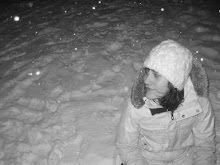
Voyage 7 – January 16th – 25th
Lyubov Orlova Asst Hotel Manager (Eric): “I got an email from the Hotel Manager of the Clipper today. They found a dead body on their ship. A passenger.”
Me: “Oh my god! [Or something along those lines] How did it happen?”
Eric: “She was old. Her son was on the ship.”
Me: “So they’re sailing back to port?”
Eric: “No. They’re sailing the cruise as normal. They put her in the fridge.”
Me: ?!
Eric: “Maritime law. If you find a body on your ship, you put it in the fridge.”
The perennial question I’ve tried to tackle in these writings is, ‘what is life like here?’ I’ve attempted in almost every post but yet I’m still not sure I know how to answer this question. Where do I start? Should I describe an average day? Should I let myself go on a tangent of useless complaints? Is there something on land that I can compare it to?
The hotel manager of one of Quark’s other ships, the Clipper, found a body in one of the cabins this week. A passenger had passed away from natural causes. Upon hearing about it though, I had to wonder what would we would do here on the Lyubov Orlova if somebody died in the middle of the cruise? I got my answer from Eric. The cruise would continue on as normal and we would store the body in the most hygienic place – the fridge – until we arrived in Ushuaia and the deceased could be shipped home. The thought of storing a body in a galley fridge struck me as silly at first, but really it makes sense. What else would we do?
I share this snippet of conversation because I think it might capture a little bit of the spirit of the world I live in. Here we have to make do with what is immediately available to us, be it a specific protocol to follow or the conversion of a fridge in the galley to a makeshift morgue, and it makes us creative.
Usually, for the day-to-day course of events what is needed is something simple, like a Russian galley chef who happens to cut hair or iceberg ice when the ice machine is broken.
The Russian sailors also make do with what they have. A specific example that affects me is their craftiness in fulfilling their need to get drunk. They’re not allowed any alcohol on the ship, yet somehow this season they keep getting their hands on beer. What’s worse, they keep getting their hands on not just any beer, but my beer. Since the beginning of the season they’ve figured out a number of ways to break into my storage spaces: they’ve jimmied the door off of one of my padlocked fridges, completely torn off the latch of a locked closet, and taken a counter completely off of one of my bars in order to get at the alcohol inside.
As it turns out, their success in getting my alcohol usually ends up being a recipe for absurdity, case in point:
One night this cruise the Russian crew’s doctor and the crew’s head stewardess went on quite the bender. The doctor was found half-naked on deck seven wielding a knife in the middle of the night. I have no idea what she was after, but apparently she had an axe to grind about something. After the knife incident I found the stewardess lounging across the buffet table like a mermaid, picking sugar packets out of their bowls and drunkenly inspecting them, one by one. I don’t know why. But I also don’t know why not. Why not? is a question I ask a lot here and I find a certain gratification in the fact that I can almost never find a suitable answer for it.
Furthermore, in consequence of the Russian crew’s Macguyver tactics to get at my alcohol, the space where I am able to store my liquor keeps getting smaller and smaller as time goes on, which in turn means that we all have to get resourceful. For example, we considered moving one of my tampered-with fridges into a different, more secure room, but the fridge was just too big to fit through the door, so now it is unplugged and used as a storage for something the Russians can’t get drunk off of: Bulk printer paper.
So I suppose that’s kind of what life is like here. If I find a body I put it in the fridge and if I can’t use a fridge for beer storage I’ll use it to store office supplies.
Why not.




